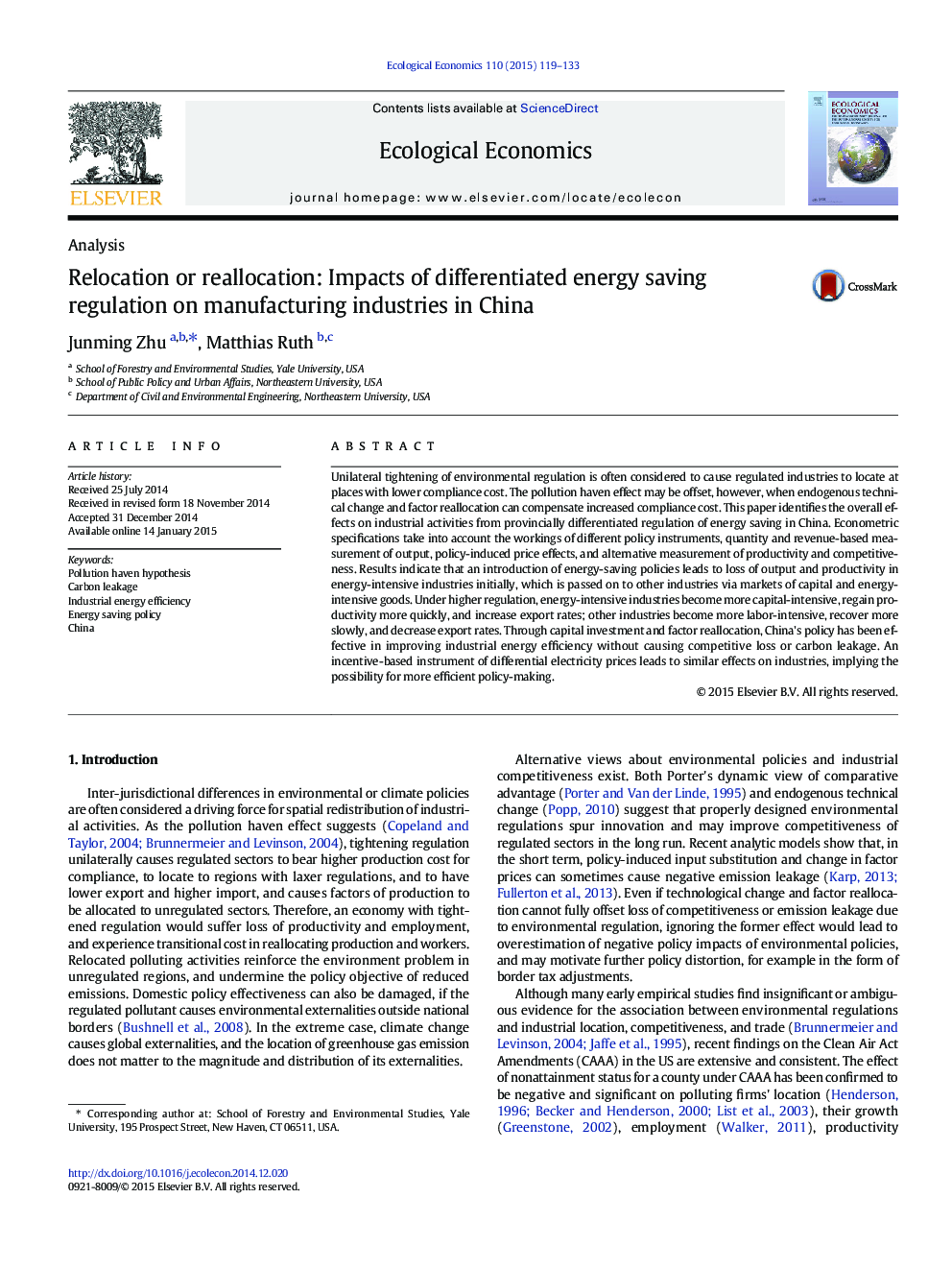| کد مقاله | کد نشریه | سال انتشار | مقاله انگلیسی | نسخه تمام متن |
|---|---|---|---|---|
| 5049473 | 1476369 | 2015 | 15 صفحه PDF | دانلود رایگان |
- Technical change and factor reallocation may offset a pollution haven effect.
- China's policy caused temporary, industry-wide loss of output and productivity.
- Energy-intensive sectors passed on their compliance cost to other sectors.
- Energy-intensive sectors became more capital-intensive and competitive.
- Total impacts are factor reallocation but no significant relocation of production.
Unilateral tightening of environmental regulation is often considered to cause regulated industries to locate at places with lower compliance cost. The pollution haven effect may be offset, however, when endogenous technical change and factor reallocation can compensate increased compliance cost. This paper identifies the overall effects on industrial activities from provincially differentiated regulation of energy saving in China. Econometric specifications take into account the workings of different policy instruments, quantity and revenue-based measurement of output, policy-induced price effects, and alternative measurement of productivity and competitiveness. Results indicate that an introduction of energy-saving policies leads to loss of output and productivity in energy-intensive industries initially, which is passed on to other industries via markets of capital and energy-intensive goods. Under higher regulation, energy-intensive industries become more capital-intensive, regain productivity more quickly, and increase export rates; other industries become more labor-intensive, recover more slowly, and decrease export rates. Through capital investment and factor reallocation, China's policy has been effective in improving industrial energy efficiency without causing competitive loss or carbon leakage. An incentive-based instrument of differential electricity prices leads to similar effects on industries, implying the possibility for more efficient policy-making.
Journal: Ecological Economics - Volume 110, February 2015, Pages 119-133
